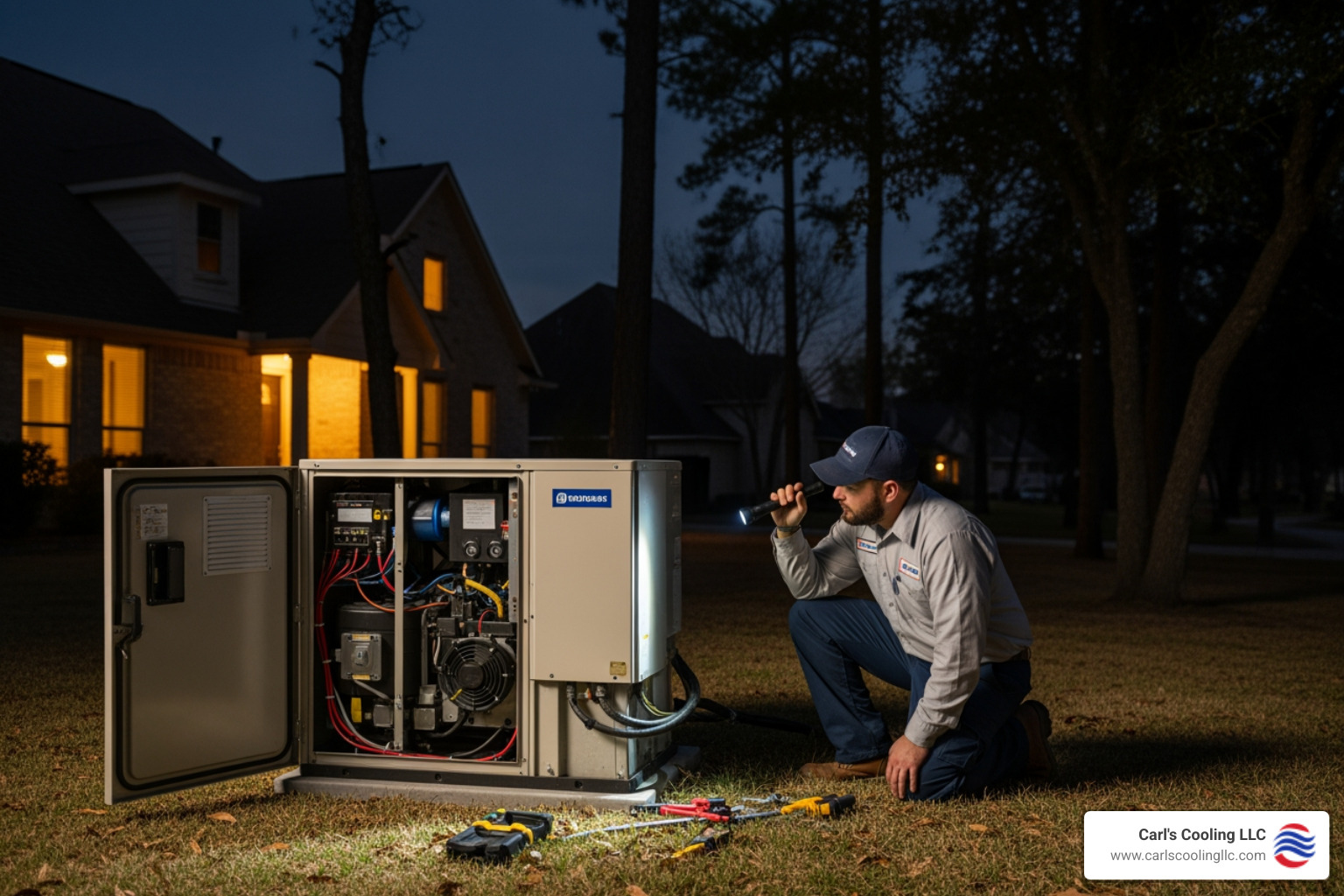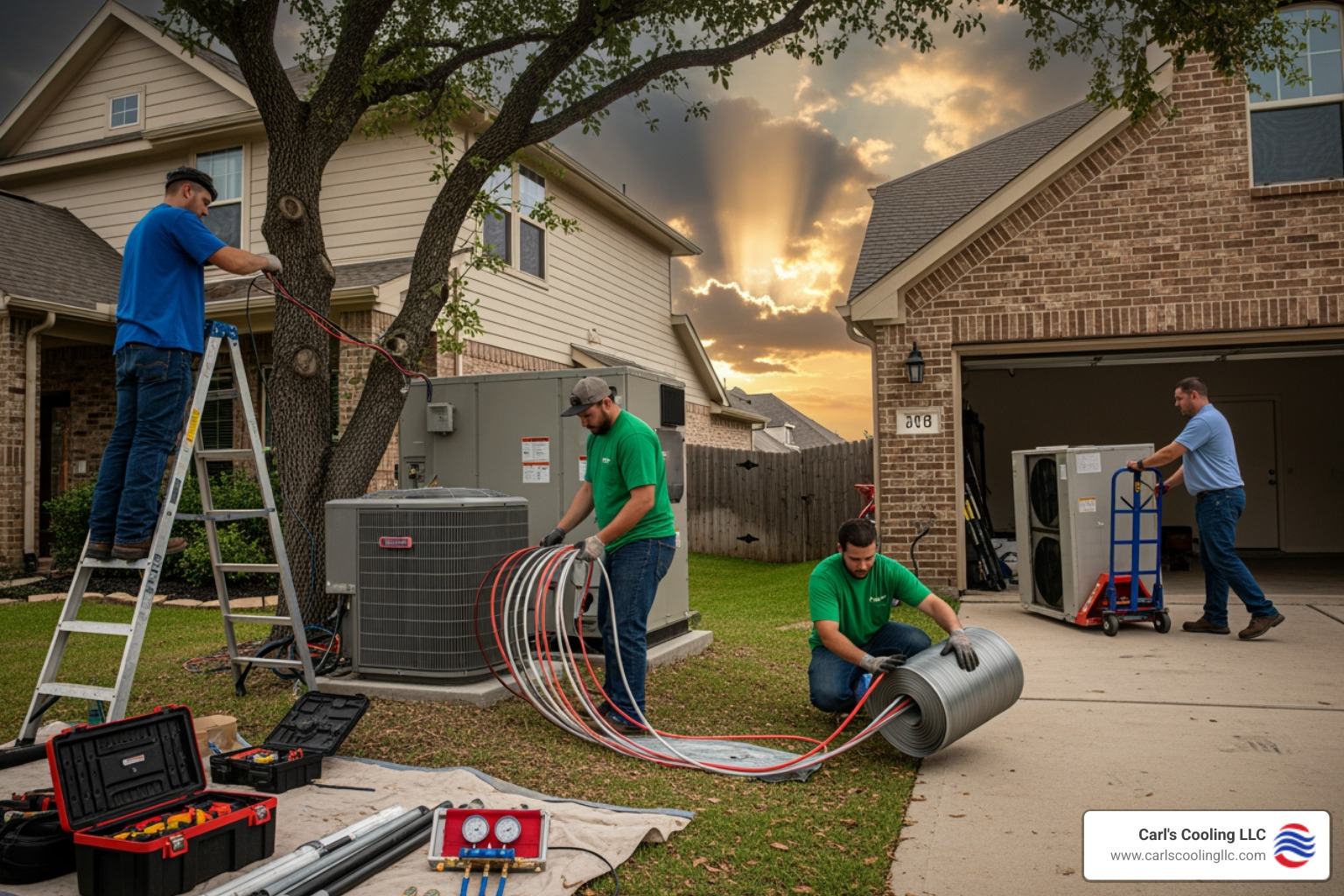During peak summer months in Bentwater, it's common to rely heavily on your air conditioning system to keep your space cool and comfortable. But when the AC starts acting up—even just a little—it often signals something more serious going on behind the scenes. One of the sneakier and more damaging issues is a refrigerant leak. It might not always be loud or obvious, but the longer it goes unnoticed, the more likely it is to put stress on the entire system.
A refrigerant leak is not just a minor inconvenience. It directly affects how efficiently your AC runs and how well it can cool your home. Ignoring it can lead to expensive repairs or even complete system failure. Knowing what to look for ahead of time can help save both money and maintain comfort throughout the summer.
Carl's Quality Cooling and Heating LLC is a family-owned company serving Bentwater. Our team is here to help you understand and spot the common signs of a refrigerant leak so it can be repaired before it causes further damage.
Common Signs Of AC Refrigerant Leaks
Refrigerant leaks often don’t make themselves known right away. They leave signs that can start small and gradually worsen. Here are a few things to watch for:
- Weak airflow: Air still moves through your vents, but it feels weaker than before. This can be an early sign that refrigerant is running low.
- Warm air from vents: When your AC is set to cool but starts producing warm air, a refrigerant leak may be reducing the system’s cooling ability.
- Hissing or bubbling sounds: These noises can mean refrigerant is escaping through a small hole or crack in the line.
- Unexplained increase in energy bills: If your energy usage hasn’t changed but your monthly bill is higher, your AC may be running longer due to low refrigerant levels.
All of these signs may seem mild at first. Many people assume the air filter needs attention or that the thermostat is the issue. But without enough refrigerant, the cooling process is disrupted, keeping your AC from reducing indoor heat the way it should.
Common Causes Of Refrigerant Leaks
Knowing how refrigerant leaks begin helps in preventing or addressing them early. While the causes vary, they typically stem from one of the following issues:
1. Corrosion: Metal coils or lines inside your AC system can corrode over time, especially in humid environments. This leads to small holes that let refrigerant escape.
2. Factory defects: Mistakes in manufacturing might result in weak components that fail early, allowing leaks to form.
3. Poor installation: If your AC system wasn’t installed correctly, leaks can begin where parts were not connected or sealed properly.
4. General wear and tear: Over the years, seals and connections in the system weaken from normal use, eventually creating gaps.
If your AC system is experiencing one of these problems, you may notice a combination of the early warning signs. Ignoring them may lead to bigger problems, including full system breakdown. Only trained professionals should inspect and repair a leaking system to prevent further damage.
The Impact Of Refrigerant Leaks On System Performance
Once refrigerant begins to leak, system performance starts to decline. Refrigerant is responsible for absorbing heat from the indoor air. With too little in the system, the cooling is interrupted.
This means your AC will work longer and harder to reach the set temperature. You’ll likely notice your unit running more often or for longer periods. As a result, your energy bills climb, even though comfort levels drop.
Over time, the added strain leads to worse outcomes. The compressor and coils can overheat or freeze due to the imbalance. If ice forms on the evaporator coil, it blocks airflow and puts extra pressure on the fan and motor. These parts can break down early, leading to major and expensive repairs.
Another serious concern involves refrigerant exposure. It’s not safe to breathe in and can become a risk if the leak happens near a vent or inside the home. Families with children, elderly adults, or people with respiratory conditions are more at risk. That is why prompt identification and repair are especially important.
How Our Professionals Identify And Repair Refrigerant Leaks
Our professionals follow careful steps to detect and repair refrigerant leaks properly. AC systems are sealed units, so if refrigerant levels drop, there is always a source that needs to be located.
Our repair process usually includes:
- Thorough inspection of all refrigerant lines and connectors
- Leak detection using advanced tools like UV dye or electronic sensors
- Pressure testing to find weak points in the system
- Repair or replacement of damaged parts or seals
- Refilling the unit with the proper refrigerant type and amount
- Final system check to confirm proper operation and no leaks
After repair, our technicians conduct additional tests to make sure there are no hidden or developing leaks anywhere else in the system. Doing this helps reduce the likelihood of repeated issues and keeps your system running more efficiently through the summer in Bentwater.
Keep Your AC Running Smoothly with Our Expert Service
Ignoring refrigerant leaks can lead to high energy costs, poor home comfort, and early system failure. In Bentwater, staying cool during summer means keeping your AC system in good working order. If you notice weak airflow, buzzing sounds, or an increase in your power bill, those can all be signs your AC needs professional attention.
Our technicians at Carl's Quality Cooling and Heating LLC are trained to detect, repair, and prevent refrigerant leaks. Early inspection and prompt repairs help avoid bigger problems, extend the life of your system, and provide peace of mind that your home will stay cool when temperatures are highest.
Addressing issues early is the best way to preserve indoor comfort and avoid preventable repair costs during extreme heat in Bentwater. Acting fast when symptoms appear can make all the difference in how long your AC lasts and how well it performs. Regular maintenance from qualified professionals keeps everything running smoothly.
If your AC system shows signs of refrigerant leaks or reduced cooling performance, Carl's Quality Cooling and Heating LLC is ready to help you get things back on track with expert solutions like AC repair in Bentwater. For a quick estimate or to book a service visit, please contact us today.






